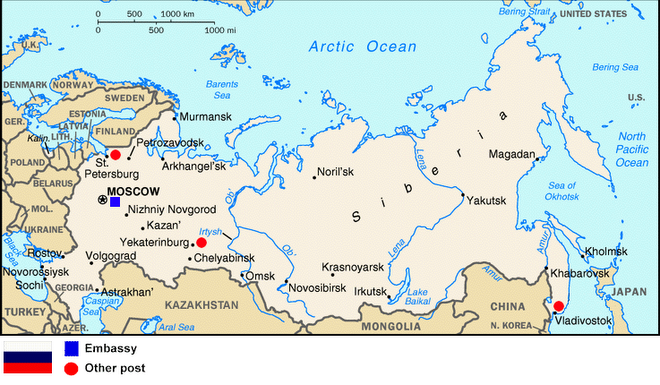 from the London Daily Telegraph, 17th August 2008
from the London Daily Telegraph, 17th August 2008I love reading the Spectator, although I instantly recoil at almost all its judgments. A friend and colleague directed me towards an article which is online now (and I guess will be in the dead-tree version tomorrow).
It is a good article, although as you might expect from a Russophile – which is what westerners accuse me of being, to the bewildered amusement of my Russian staff – I do not share all the author’s conclusions. I do, though, agree with him on expansion of the UN Security Council (with rapid adoption of QMV and an abolition of the veto – yes, I know, it’ll never happen) and the replacement of G8 with G12 (plus India, China, Brazil and Turkey).
 But to the theme of his article: Georgia. All of us, however near or far from the Russia-NATO debate, have had our own little moment of intellectual ferreting-about, trying to find le mot juste for the causation of ‘Russia’s Most Excellent South Ossetian Vacation’.
But to the theme of his article: Georgia. All of us, however near or far from the Russia-NATO debate, have had our own little moment of intellectual ferreting-about, trying to find le mot juste for the causation of ‘Russia’s Most Excellent South Ossetian Vacation’. Understanding the ebb and flow of Caucasus politics is somewhat like trying to understand the Schleswig-Holstein Question; of which Lord Palmerston memorably said: “Only three people understood the Schleswig-Holstein Question. The first was Albert, the Prince consort and he is dead; the second is a German professor, and he is in an asylum: and the third was myself - and I have forgotten it”
Understanding the ebb and flow of Caucasus politics is somewhat like trying to understand the Schleswig-Holstein Question; of which Lord Palmerston memorably said: “Only three people understood the Schleswig-Holstein Question. The first was Albert, the Prince consort and he is dead; the second is a German professor, and he is in an asylum: and the third was myself - and I have forgotten it”Georgia. South Ossetia. Really it is all the fault of that Woodrow Wilson chap. Possibly the biggest brain ever to occupy the Oval Office; and yet his two terms in office were blighted. He was the one who, during and in the aftermath of the First World War, got everyone so excited by the idea of Idealism in foreign policy. It has been torturing us ever since.
 Indeed, for a long time one might have argued that the Wilsonian / ‘American’ school of foreign policy nicely contrasted with the Palmerstonian or ‘British’ view. Put it another way: what Lord Palmerston would have said was “Nations have no permanent friends or allies, they only have permanent interests": Georgia is not our ally and we have no interests there. Leave it to the Russians.’
Indeed, for a long time one might have argued that the Wilsonian / ‘American’ school of foreign policy nicely contrasted with the Palmerstonian or ‘British’ view. Put it another way: what Lord Palmerston would have said was “Nations have no permanent friends or allies, they only have permanent interests": Georgia is not our ally and we have no interests there. Leave it to the Russians.’ On the other hand, Palmerston was the ‘ultimate pre-emptionist’, not adverse to gunboat diplomacy, which is a sabre-rattle too far just now (and worryingly apropos GW Bush).
 Self Determination as a key-determinant of national sovereignty – and the existence of a state that ought to be recognized - was a Wilsonian idea. He espoused it because, inter alia, he hated empires. His was that whole end-the Empires vibe that the USA later rammed down British and French throats after World War II – and thus flowered, as we swapped colonial power for US dollars – democracy and stability in Africa and Indochina…well, OK, not quite.
Self Determination as a key-determinant of national sovereignty – and the existence of a state that ought to be recognized - was a Wilsonian idea. He espoused it because, inter alia, he hated empires. His was that whole end-the Empires vibe that the USA later rammed down British and French throats after World War II – and thus flowered, as we swapped colonial power for US dollars – democracy and stability in Africa and Indochina…well, OK, not quite.
Today in international law, we tend to assume four things for a sovereign state to exist a (1) land; with (2) settled borders; (3) settled people and a form of (4) government. Sean has been writing very convincingly about the West’s turning a deaf ear to the Ossetian voice, and that that we only hear the view from Tbilisi.
On a Wilsonian view of the world, South Ossetia has a right to be treated as being capable of independence. The same line we used, of course, for Kosovo (actually the issue was more ragged over Kosovo than over South Ossetia). The Russians aren’t especially mad at us Westerners for our hypocrisy. Quite the contrary, I am sure they love rubbing our noses in our own ‘International Rule of Law’ shit.
Self-determination, however, is proving a most crappy touchstone for international affairs. We loved it for Kosovo; hate it for South Ossetia and scarcely know what to think about Transnistria or Nagorny-Karabakh; and run for cover if you mention Flanders; Basque or Chechnya.
It is time to ditch self-determination as a theory in international realpolitik. At best all you get are smaller and smaller countries scarcely able to govern themselves, who have no international voice and who are over-dependent on big states (the USA, Russia or the pseudo-state of the EU). It was self-determination which brought back to us the Georgian state (which was snuffed out by the Russians in 1801, but made virtually unsustainable by Persians from the Middles Ages onwards).
 I don’t much care whether Georgia is free of Russia or not (there, I've come out, I've said it). I care even less about South Ossetia. But I think ‘Sovereign Montenegro’ a ridiculous idea; Kosovo toxically the more so and have no wish to see a new-born state called South Ossetia. Let the Russians have it! One sure way to take the pressure off of the Western Alliance is to give Russia all the rope it wants.
I don’t much care whether Georgia is free of Russia or not (there, I've come out, I've said it). I care even less about South Ossetia. But I think ‘Sovereign Montenegro’ a ridiculous idea; Kosovo toxically the more so and have no wish to see a new-born state called South Ossetia. Let the Russians have it! One sure way to take the pressure off of the Western Alliance is to give Russia all the rope it wants.
That said it sucks to be Belorussia or Ukraine. And I see that Minsk is getting it in the neck for having been just a little too reticent recently.
Should we care if Russia moves to take the Crimea? Why? We know that Russia knows it can’t reverse the lost Warsaw Pact countries’ membership of NATO so, therefore, where really is the self-interest in our trying to control events east of NATO, that pose no threat to NATO territory? Just because Appeasement failed in 1938 doesn’t mean this time it isn’t in our best long-term interests.
 Self Determination as a key-determinant of national sovereignty – and the existence of a state that ought to be recognized - was a Wilsonian idea. He espoused it because, inter alia, he hated empires. His was that whole end-the Empires vibe that the USA later rammed down British and French throats after World War II – and thus flowered, as we swapped colonial power for US dollars – democracy and stability in Africa and Indochina…well, OK, not quite.
Self Determination as a key-determinant of national sovereignty – and the existence of a state that ought to be recognized - was a Wilsonian idea. He espoused it because, inter alia, he hated empires. His was that whole end-the Empires vibe that the USA later rammed down British and French throats after World War II – and thus flowered, as we swapped colonial power for US dollars – democracy and stability in Africa and Indochina…well, OK, not quite.Today in international law, we tend to assume four things for a sovereign state to exist a (1) land; with (2) settled borders; (3) settled people and a form of (4) government. Sean has been writing very convincingly about the West’s turning a deaf ear to the Ossetian voice, and that that we only hear the view from Tbilisi.
On a Wilsonian view of the world, South Ossetia has a right to be treated as being capable of independence. The same line we used, of course, for Kosovo (actually the issue was more ragged over Kosovo than over South Ossetia). The Russians aren’t especially mad at us Westerners for our hypocrisy. Quite the contrary, I am sure they love rubbing our noses in our own ‘International Rule of Law’ shit.
Self-determination, however, is proving a most crappy touchstone for international affairs. We loved it for Kosovo; hate it for South Ossetia and scarcely know what to think about Transnistria or Nagorny-Karabakh; and run for cover if you mention Flanders; Basque or Chechnya.
It is time to ditch self-determination as a theory in international realpolitik. At best all you get are smaller and smaller countries scarcely able to govern themselves, who have no international voice and who are over-dependent on big states (the USA, Russia or the pseudo-state of the EU). It was self-determination which brought back to us the Georgian state (which was snuffed out by the Russians in 1801, but made virtually unsustainable by Persians from the Middles Ages onwards).
 I don’t much care whether Georgia is free of Russia or not (there, I've come out, I've said it). I care even less about South Ossetia. But I think ‘Sovereign Montenegro’ a ridiculous idea; Kosovo toxically the more so and have no wish to see a new-born state called South Ossetia. Let the Russians have it! One sure way to take the pressure off of the Western Alliance is to give Russia all the rope it wants.
I don’t much care whether Georgia is free of Russia or not (there, I've come out, I've said it). I care even less about South Ossetia. But I think ‘Sovereign Montenegro’ a ridiculous idea; Kosovo toxically the more so and have no wish to see a new-born state called South Ossetia. Let the Russians have it! One sure way to take the pressure off of the Western Alliance is to give Russia all the rope it wants.That said it sucks to be Belorussia or Ukraine. And I see that Minsk is getting it in the neck for having been just a little too reticent recently.
Should we care if Russia moves to take the Crimea? Why? We know that Russia knows it can’t reverse the lost Warsaw Pact countries’ membership of NATO so, therefore, where really is the self-interest in our trying to control events east of NATO, that pose no threat to NATO territory? Just because Appeasement failed in 1938 doesn’t mean this time it isn’t in our best long-term interests.





1 comment:
For once I find myself in total agreement with you dear boy. If everyone would just stop willy waving for a moment I'm sure we'd see that Nato has very little to lose from whats happening in Georgia. Moscow is playing a far riskier game in recognising breakaway states. That is until unrest in Cornwall starts again
Post a Comment